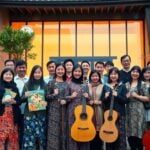Navigating the labyrinth of grant applications begins with a thorough understanding of the specific requirements set forth by the funding agency. Each grant comes with its own set of guidelines, eligibility criteria, and expectations that must be meticulously adhered to in order to avoid disqualification. It is essential to read the grant announcement or request for proposals (RFP) in its entirety, paying close attention to details such as funding limits, project duration, and allowable expenses.
Often, these documents will outline the goals of the funding agency, which can provide invaluable insight into how to align your project with their mission. By grasping these nuances, applicants can tailor their proposals to resonate with the funders’ priorities, thereby increasing their chances of success. Moreover, understanding the grant requirements extends beyond mere compliance; it involves a strategic approach to framing your project within the context of the funder’s objectives.
This means identifying key themes or areas of interest highlighted in the grant guidelines and ensuring that your project addresses these focal points. For instance, if a grant emphasizes innovation or community impact, your proposal should clearly articulate how your project embodies these elements. Additionally, it is prudent to familiarize yourself with any reporting or evaluation requirements that may accompany the funding.
This foresight not only aids in crafting a compelling application but also prepares you for the accountability measures that will follow should you receive the grant.
Key Takeaways
- Understand the specific requirements of the grant before beginning the application process
- Create a detailed project plan that clearly outlines the goals, objectives, and timeline of the proposed project
- Gather all necessary documentation, such as budgets, resumes, and letters of support, to support the grant application
- Write a compelling narrative that effectively communicates the significance and impact of the proposed project
- Review and edit the application thoroughly to ensure it is free of errors and presents a strong case for funding
- Submit the application on time to meet the grant deadline and increase the chances of success
Creating a Detailed Project Plan
Developing a Comprehensive Project Plan
Once you have a thorough understanding of the grant requirements, the next step is to create a detailed project plan that outlines your objectives, methodologies, and anticipated outcomes. A well-structured project plan serves as the foundation of your proposal, providing clarity and direction for both you and the reviewers.
Defining Project Goals and Objectives
Begin by defining your project’s goals in specific, measurable terms. This clarity will not only guide your implementation but will also demonstrate to funders that you have a clear vision and a realistic approach to achieving your objectives. Consider employing tools such as logic models or Gantt charts to visually represent your project timeline and milestones, which can enhance the readability and professionalism of your application.
Outlining Methodologies and Addressing Challenges
In addition to outlining goals and timelines, it is crucial to detail the methodologies you will employ to achieve these objectives. This includes specifying the activities you will undertake, the resources required, and the personnel involved. A thorough project plan should also address potential challenges and risks, along with strategies for mitigation. By anticipating obstacles and demonstrating preparedness, you instill confidence in funders regarding your ability to execute the project successfully.
Creating a Realistic Budget
Furthermore, including a budget that aligns with your project plan is essential; it should reflect realistic costs associated with each activity while adhering to any financial guidelines stipulated by the grantor.
Gathering Necessary Documentation

The process of gathering necessary documentation is often one of the most time-consuming aspects of preparing a grant application, yet it is critical for establishing credibility and support for your proposal. Documentation may include letters of support from community partners, organizational charts, resumes of key personnel, and proof of nonprofit status if applicable. Each piece of documentation serves a distinct purpose: letters of support can validate your project’s relevance within the community, while resumes can showcase the expertise of your team members.
Collecting these materials early in the process can alleviate last-minute stress and ensure that you have ample time to secure any necessary endorsements or approvals. In addition to organizational documentation, it is important to compile any data or research that supports your project’s need and feasibility. This may involve gathering statistics on community needs, previous studies related to your project area, or case studies that illustrate successful outcomes from similar initiatives.
By presenting a well-rounded body of evidence, you not only strengthen your case but also demonstrate due diligence in understanding the landscape in which you are operating. Furthermore, ensure that all documentation is current and relevant; outdated information can undermine your proposal’s credibility and suggest a lack of attention to detail.
Writing a Compelling Narrative
Crafting a compelling narrative is perhaps one of the most critical components of a successful grant application. The narrative should weave together all elements of your proposal into a cohesive story that captivates reviewers while clearly articulating the significance of your project. Start by introducing the problem or need that your project addresses, using data and anecdotes to illustrate its urgency and relevance.
This sets the stage for why your project matters and why funding is essential. As you progress through the narrative, ensure that each section logically flows into the next, maintaining a clear connection between your objectives, methodologies, and anticipated outcomes. Moreover, it is vital to infuse passion and authenticity into your writing.
Reviewers are not just looking for facts; they want to feel inspired by your vision and motivated by your commitment to making a difference. Use vivid language and personal stories where appropriate to humanize your proposal and create an emotional connection with the reader. Additionally, be mindful of jargon or overly technical language that may alienate reviewers who are not experts in your field.
Strive for clarity and conciseness while ensuring that your narrative remains engaging throughout. A well-crafted narrative not only informs but also persuades, making it an indispensable element of any successful grant application.
Reviewing and Editing the Application
The importance of reviewing and editing your application cannot be overstated; this step is crucial for ensuring clarity, coherence, and professionalism in your submission. After completing your initial draft, take a step back before diving into revisions. This pause allows you to approach your work with fresh eyes, making it easier to identify areas that may require clarification or enhancement.
During this phase, focus on both content and structure: ensure that each section aligns with the grant requirements and that there is a logical flow throughout the document. It may be helpful to create an outline based on the grant guidelines to verify that all necessary components are included. In addition to self-review, seeking feedback from colleagues or mentors can provide valuable perspectives on your application’s strengths and weaknesses.
Constructive criticism can help identify unclear sections or areas where additional detail may be needed. Furthermore, consider enlisting someone who has experience with grant writing or who has successfully secured funding in the past; their insights can be particularly beneficial in refining your narrative and enhancing its persuasive power. Finally, pay close attention to grammar, punctuation, and formatting; even minor errors can detract from an otherwise strong proposal and may lead reviewers to question your attention to detail.
Submitting the Application on Time

The final step in the grant application process is submission—a seemingly straightforward task that requires careful attention to detail and adherence to deadlines. Many funding agencies have strict submission timelines, often accompanied by specific protocols for how applications should be submitted—whether electronically or via hard copy. It is imperative to familiarize yourself with these requirements well in advance of the deadline to avoid any last-minute complications.
Create a timeline leading up to the submission date that includes milestones for completing various components of your application, allowing ample time for review and revisions. In addition to timing, ensure that all components of your application are complete and formatted according to the funder’s specifications before hitting “submit.” Double-check that all required documents are included and properly labeled; missing materials can lead to disqualification regardless of how strong your proposal may be. If submitting electronically, confirm that you receive a confirmation email or receipt indicating that your application has been successfully submitted.
Finally, consider following up with the funding agency after submission to express gratitude for their consideration and inquire about any next steps in the review process. This proactive approach not only demonstrates professionalism but also keeps you engaged in what can often be a lengthy evaluation period.
If you’re looking for guidance on how to craft a compelling grant application under a tight deadline, it might be helpful to explore specific opportunities where these skills can be directly applied. For instance, the SHRF Mobilize Grants in Canada call for proposals is an excellent example. This grant focuses on mobilizing knowledge and research to address community needs, and understanding the specifics can help you tailor your application effectively. By studying real grant opportunities, you can better understand what funders are looking for and how to structure your application to meet these criteria efficiently, even when working against the clock.
FAQs
What is a grant application?
A grant application is a formal request for financial support from an organization, government agency, or foundation to fund a specific project or program.
What are the key components of a grant application?
Key components of a grant application typically include a project proposal, budget, timeline, and supporting documents such as organizational information, letters of support, and financial statements.
What are some tips for writing a winning grant application on a tight deadline?
Some tips for writing a winning grant application on a tight deadline include carefully reviewing the application guidelines, creating a detailed project plan, seeking feedback from colleagues or mentors, and allocating sufficient time for editing and proofreading.
How can I effectively manage my time when writing a grant application on a tight deadline?
To effectively manage time when writing a grant application on a tight deadline, it is important to prioritize tasks, set specific deadlines for each section of the application, and eliminate distractions to focus on the writing process.
What are some common mistakes to avoid when writing a grant application on a tight deadline?
Common mistakes to avoid when writing a grant application on a tight deadline include submitting a generic proposal, neglecting to tailor the application to the funder’s priorities, and failing to adhere to the application guidelines and requirements.


























